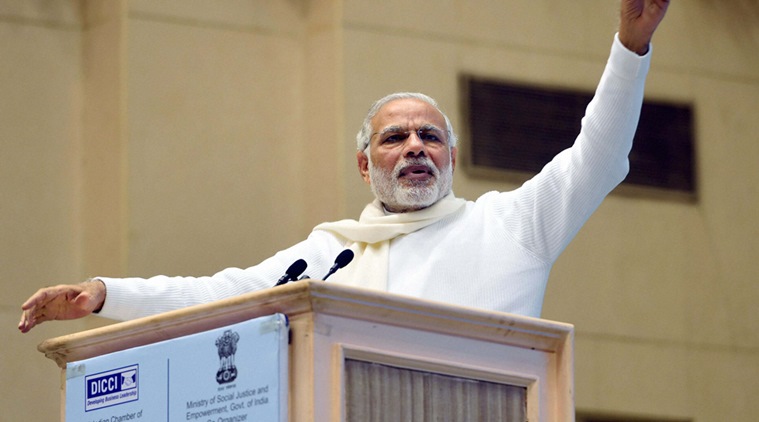In his Prime Ministerial tenure, PM Modi has taken unprecedented steps to implement financial inclusion, in order to encourage the development of the nation, be it economic or human. In the development strategies, the focus on entrepreneurship and startups has been the highlight which PM Modi has done by introducing several schemes and tax cuts. The forefront of the schemes to facilitate entrepreneurship development has been the MUDRA Yojana. MUDRA is often viewed as the biggest ever financial inclusion for the socially disadvantaged section of society.
MUDRA scheme has been one of PM Modi’s most innovative schemes to create employment opportunities. It was announced by the Union Finance Minister Arun Jaitley while presenting the Union Budget for the Financial Year 2015−16. As part of the scheme, cheap and collateral free loans are offered to small businesses. It is aimed at helping the micro enterprises engaged in manufacturing, processing, trading, and service sector activities for financial assistance from 50,000 INR up to 10 lakh INR.
PM Modi talked about the scheme in his blog, “MUDRA was envisioned and institutionalized to bridge the gap and facilitate ‘funding the unfunded’. MUDRA Yojana is aptly addressing the aspirations of the SC/ST youth.”
Under the scheme, the benefits granted to the Dalit entrepreneurs have been tremendous. Traditionally, they have been one of the most financially weak segments of the society. They could not easily acquire loans to start businesses since traditionally they have been a landless group with little or nothing to offer as collateral. However, under this scheme, the Dalit businesses have grown at an unprecedented rate, as they have acquired the means to support the business through the loans granted. With the help of MUDRA, Dalits have started to look for opportunities in the commercial sphere including in the sector of entrepreneurship and innovation ecosystem.
PM Modi further elaborates on the encouraging atmosphere MUDRA has created for Dalit entrepreneurs blog, “It is envisioned to create the sustainable platform for SC/ST youth to start business and is hugely benefitting the SC/ST community to taste the fruits of national growth and development.”
PM Modi stated, “80,000 borrowers have benefited from the scheme under which more than Rs 50,000 crore worth of loans have been given primarily to SC, ST, OBCs and women entrepreneurs who are engaged in small business and provide jobs to about 14 crore persons.”
As per the available data, MUDRA loan beneficiaries belonging to SC category are 61.14 lakh and 16.78 lakh are from ST category; total accounts of SC & ST are 77.92 lakh. The total percentage is 22.34 % and the total disbursement amount is Rs 19,433 crore by the MUDRA Yojana. This has created a positive impact on the livelihood of the traditionally neglected sect of the society.
Hailing the absolute success of the scheme, PM Modi said, “Financial inclusion is at the core of the government’s focus, which is to create job-creators, not job-seekers.”
PM Modi also remembered Dr Babasaheb Ambedkar in his speech yesterday. He said, “Babasaheb rightly said that industrialization will give maximum benefit to our Dalit sisters and brothers.”
Moreover, the social justice and empowerment ministry has identified about 7,500 persons engaged in manual scavenging and they have been given a grant of Rs 40,000 to look for small business opportunities.
These efforts by the Modi government for the Dalits will not go unnoticed and will reap huge benefits in the 2019 electoral battle. As PM Modi rightly states in his blog, after implementation of this scheme, families across the country have seen improved lifestyles as they are now able to deliver quality education to their children and are creating a large number of employment opportunities for others as well. Dalit youth across the country are interested in starting their own business and becoming entrepreneurs as they are hugely inspired by the philosophy of Dalit Indian Chamber of Commerce and Industry (DICCI) – ‘Be Job givers, not Job seekers’.
